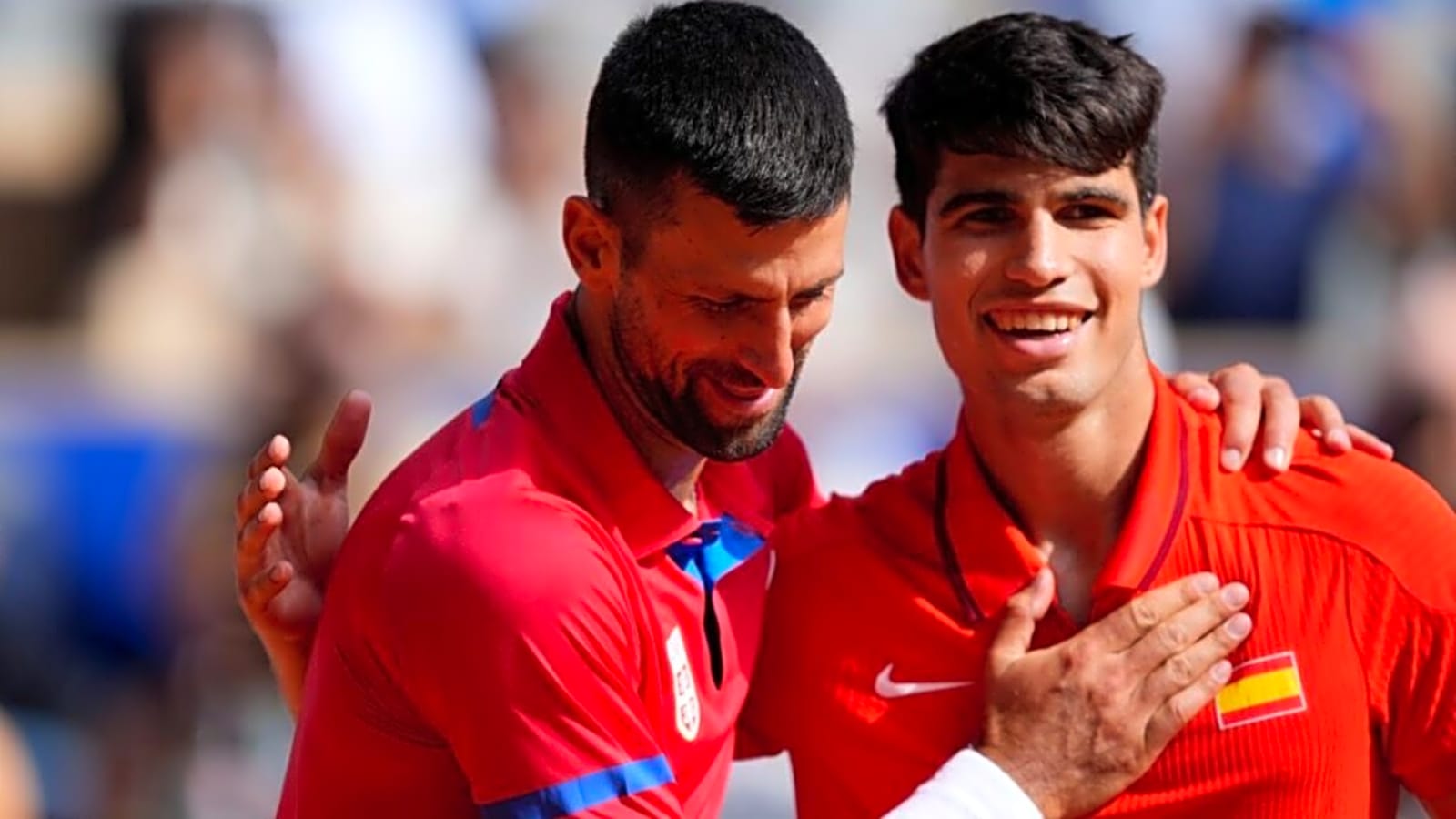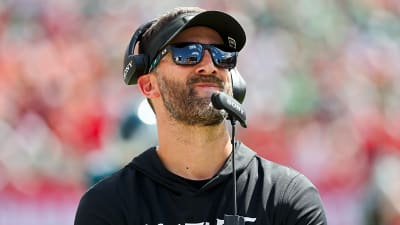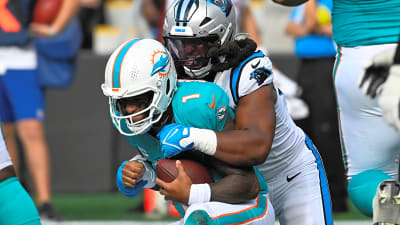
There were several reasons to believe that Novak Djokovic could, at the very least, complicate his match against Carlos Alcaraz.
The first was that Alcaraz is not Jannik Sinner, so this wasn’t a matchup that troubled Djokovic in the same way, so he entered it with a greater dose of confidence. After all, Nole had beaten him in their last two encounters, both of which could be described as traumatic defeats for Alcaraz. The first came in last year’s Olympic final, but even more significant was Djokovic’s win at the Australian Open less than nine months ago.
Alcaraz vs Djokovic: Passing of the Torch
Both of those losses were, from Alcaraz’s perspective, somewhat unexpected and painful, and it was clear they might play a role in the psychology of this match. If there is someone who knows how to make him nervous, impatient, and vulnerable—to the point where he behaves even unsportsmanlike, something he rarely does—it is Djokovic. On paper, Alcaraz was the (heavy) favorite in those last two matches, and it is evident that this was a burden he still didn’t quite know how to handle. Given his age, that was hardly a fault. At the same time, the underdog role suited Djokovic perfectly.
Another reason for optimism among Djokovic’s supporters, or simply those who were hoping for another epic duel, was the fact that Nole had two full days of rest before the semifinal. That wasn’t the case ahead of his matches against Sinner at Roland Garros and Wimbledon, a detail he himself highlighted before this match. Djokovic needed to come in relatively healthy and fresh if he was to have any chance at all, and this time it seemed like it might finally be the case. Lately, at Grand Slams, that had rarely happened, and it was clear that without it, he had no chance whatsoever.
So those were the reasons for optimism, and Djokovic did hold his own for a while and created some chances. He led 3–0 in the second set and could have, for example, played a better tie-break there. However, overall, Alcaraz was simply too good. He has matured since their last two meetings and, it can be said, is now just that little bit better of a player.
“We always knew what he could do with the racquet, but the truth is that mentally he’s stronger than ever, above all in terms of concentration and being consistently solid,” his coach, Juan Carlos Ferrero, said a few days ago. “I think at this tournament, he’s starting to show how great his potential might be. (…) He’s making five, six, maybe seven unforced errors per set, and I think that’s the biggest difference compared to previous tournaments.”
How Did Alcaraz Finally Beat Djokovic on a Hard Court?
In the match against Djokovic, however, it wasn’t quite like that. Alcaraz made 13 unforced errors in the first set and 14 in the second. That isn’t all that surprising in a match with so much at stake, especially with someone across the net who still covers the court brilliantly, but those numbers deserve a closer look.
In the first set, Alcaraz made just one fewer unforced error. He was generally steadier and calmer, and didn’t string together several errors in a single service game. Instead, he largely kept control of the set. Alcaraz broke Djokovic right away in the opening game and never offered him a single break point until the end. His serve was dominant, and he regularly found his forehand right after the first shot, helped no doubt by the warmer conditions that made the ball livelier and quicker. He closed out the set with three service winners and an ace.
Then, however, came exactly what shouldn’t happen to him. Much like in the Wimbledon final, when his concentration dipped sharply at the start of the second set, he handed his opponent a break yesterday as well, this time at 1–0 Djokovic, and suddenly put him straight back into the match.
So the problem isn’t making 13 or 14 unforced errors in a set at this level, especially when you’re as aggressive as Alcaraz. The problem is when you produce four wild mistakes in a single game or show poor shot selection and gift your opponent a break. That’s precisely what happened in that second game of the second set, and soon Djokovic was up 3–0.
But then the experience from their last two encounters showed, along with his ability not to let negative emotions or nerves take over. Alcaraz managed to break back, and the set went to a tie-break, where he was just a shade braver and calmer.
At 4–4 in games, he even had a chance to break Djokovic, though again he made a few poor decisions. But that was the difference compared to before: he stayed relatively calm, played the tie-break a bit better, and it was enough. It also showed in how much sharper he was returning with his forehand on the deuce side, where Djokovic had practically drilled holes through him in their last two matches, even off the second serve, and at times on the ad side as well.
That proved more than enough for Djokovic this time around, but everybody knew that he would need something more for Sinner, and he delivered. But that is a story for another day.
More must-reads:
- 2026 World Cup: What teams are in, who's close and key qualifying matches to watch
- 49ers' red-hot backup Mac Jones aims to keep streak alive against Buccaneers
- The 'Most starts by an NFL quarterback' quiz
Breaking News
Trending News
Customize Your Newsletter
 +
+
Get the latest news and rumors, customized to your favorite sports and teams. Emailed daily. Always free!








